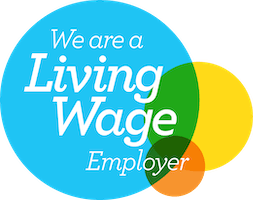High functioning anxiety
By Erin Hallett
My relationship with my anxiety and my ambition is complicated. For as long as I can remember being ambitious, I can also remember being anxious.
Ambition, defined by online Cambridge Dictionary, is “a strong wish to achieve something”. The same dictionary defines anxiety (medical condition) as “a medical condition in which you always feel frightened and worried”.
These two nouns contradict each other. How can I achieve anything if I am always fearful? Over my lifetime, I have achieved a random list of accomplishments from reading 100 books during my first year of primary school, to traveling to Paris over a dozen times, to running marathons, and to having an international career. I have also spent a significant amount of this time worried, sometimes to the point of illness, about everything from plane crashes to suspicious moles and lumps, to eating expired food, and to dying alone.
I have what is commonly referred to as ‘high-functioning anxiety’. Google returns pages of articles in publications like Cosmopolitan, Forbes, and even Country Life about this type of anxiety. The articles describe an unhealthy relationship with perfectionism and a fear of disappointing others. Many of them describe the individuals as being organised, social, and high achieving.
High achieving and highly anxious.
I spent my teens, twenties, and most of my thirties exhausting myself to hide my anxiety. Only those closest to me knew my preferred pattern was to push myself to the point of physical and emotional illness and then recover quietly with a ‘migraine’ or ‘food poisoning’. My Mum recognised it when I was in high school and used to give me mental health days to recover. This was the early 1990’s, and her awareness was unusual. Later my husband supported me and encouraged me to get the professional help I needed.
In my late thirties, I achieved what had been one of my greatest ambitions. I moved to the UK to pursue an international career. I spent the first year too busy and overwhelmed to pay any attention to my anxiety. Everything was new, everything was exciting, and my initial job wasn’t overly taxing. I was busy falling in love with London and the life I had always dreamed of living.
I changed jobs in my second year moving to a more senior role at a prestigious university. It was what I described, and still do, as my dream job. I was leading a team for the first time, traveling around the world, and engaging with brilliant people. The job felt like the ultimate realisation of my ambition, and I felt even further removed from my anxiety.
It was after a particularly busy period that I started to feel unwell. Looking back, I should have paid attention to the fact I wasn’t sleeping, that I was irritable, and that inconsequential things were worrying me. I ended up having what I believed was a heart attack at the office, but of course ended up being a panic attack.
What I will always remember most about sitting in A&E that day was the deep sense of shame and embarrassment. I felt like I had let everyone down and that my career wouldn’t recover. I imagined no one would respect me or believe in my abilities, especially as a leader. A simple text from a compassionate team member gave me the courage to tell the truth.
I went back to the work the next day and started to share my story. I felt that being honest was the only healthy way my ambition and my anxiety could co-exist. I wanted to show others that having anxiety doesn’t make you less successful or less ambitious. Leadership is about being authentic.
Last year, I changed jobs again to my most senior role as a Director at Cambridge Judge Business School. I wanted the job from the moment the recruitment pack hit my inbox, but not at the expense of my mental health. I remember attending the in-person interview and making the conscious decision to speak about my anxiety, the challenges, but also how it positively impacts my leadership style.
Anxiety makes me a better leader. It has taught be empathetic and humbled me. I know the importance of asking for help. Most importantly, it has taught me that anxiety isn’t a barrier to my success or ambition. Anxiety, and other mental health issues, don’t define individuals or limit their potential. The more leaders speak out about their mental health, the more they empower others to bring their whole selves to work and to create healthy, positive organisations.
My anxiety is only one small part of me. But it is an important one, and one that complements my personal and professional success and happiness.
The views expressed by the contributor are not necessarily those of Anxiety UK, nor can we guarantee the accuracy of the information provided. If you would like to write a blog for AUK please email [email protected] for more information.









